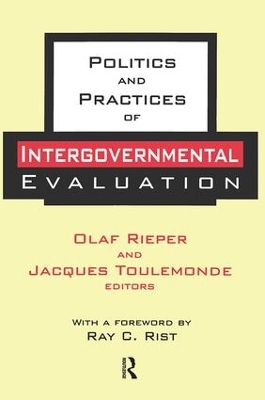Comparative Policy Evaluation
1 total work
Politics and Practices of Intergovernmental Evaluation
by Brian Crozier and Ray C. Rist
Published 31 December 1996
Great intellectual effort has gone into the development of sophisticated designs and methodologies to study individual policies, programs, and projects. Costly efforts to find the smallest evidence of a policy or program impact have been undertaken in the presumption that such data are central to policy decision making. Meanwhile, the intergovernmental nature of political and policy governance has been ignored. Whether it is Canada, the United States, England, Denmark, Sweden, Germany, Japan, or any other industrial country, the governmental structure is essentially a web of interrelated policies, programs, and projects. To understand local responsibilities and requirements, one must also understand the role that regional and national governmental agencies and administrations play. Politics and Practice of Intergovernmental Evaluation is a landmark work in the area of the evaluation of intergovernmental policies, programs, and projects. Comparative and cross-national in its perspective, the material presented here not only provides a systematic theoretical and empirical treatment of intergovernmental evaluation, but does so with case material from seven nations and the European Union. No other such comparative work exists on this topic. Contributors include: Jan Eric Furubo; Mary Henkel; Linda G. Morra; Robert V. Segsworth and Dale H. Poel; and Willi Zimmermann and Peter Knoepfel. The Politics and Practice of Intergovernmental Evaluation will be of interest to political theorists, policymakers, and scholars and students of government and the evaluation community.
